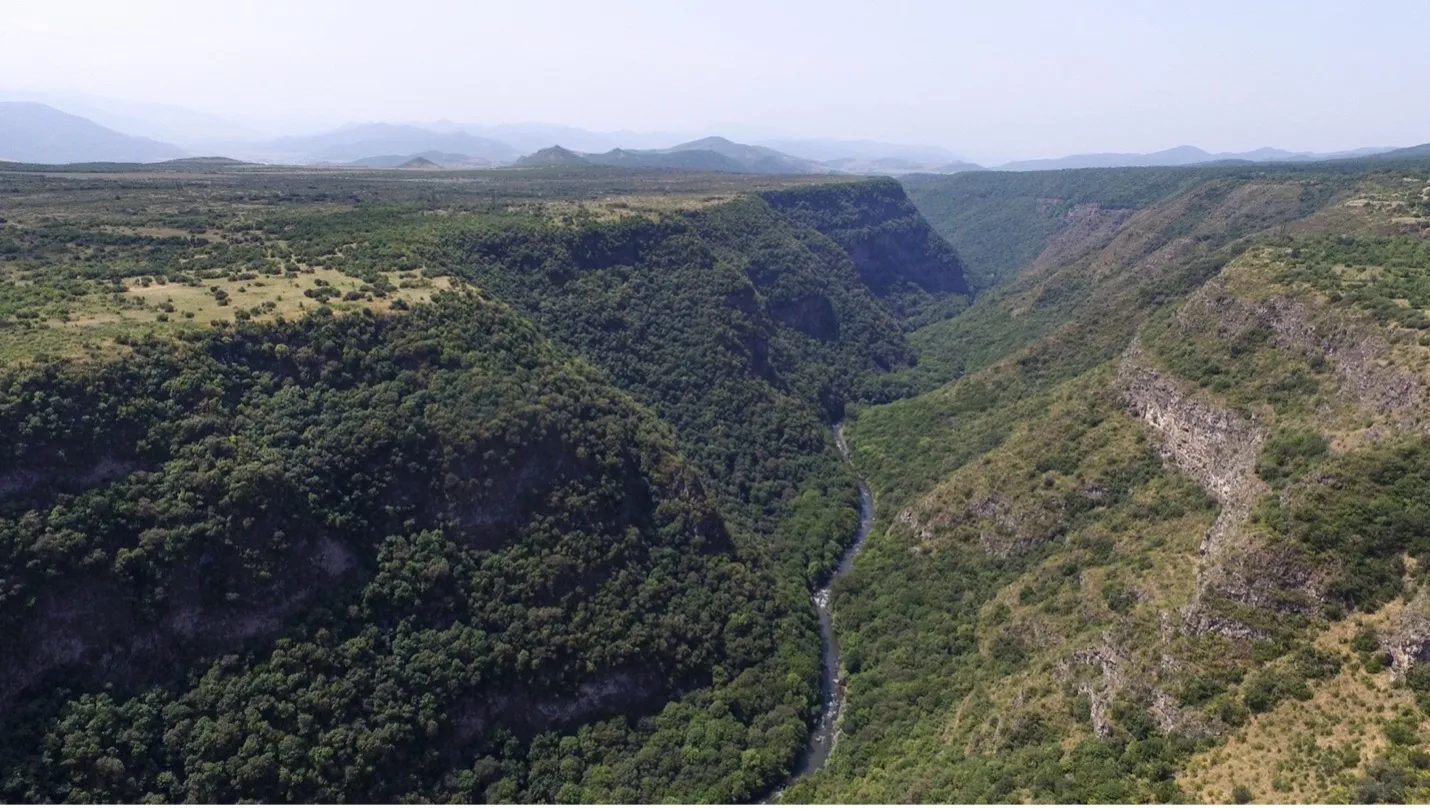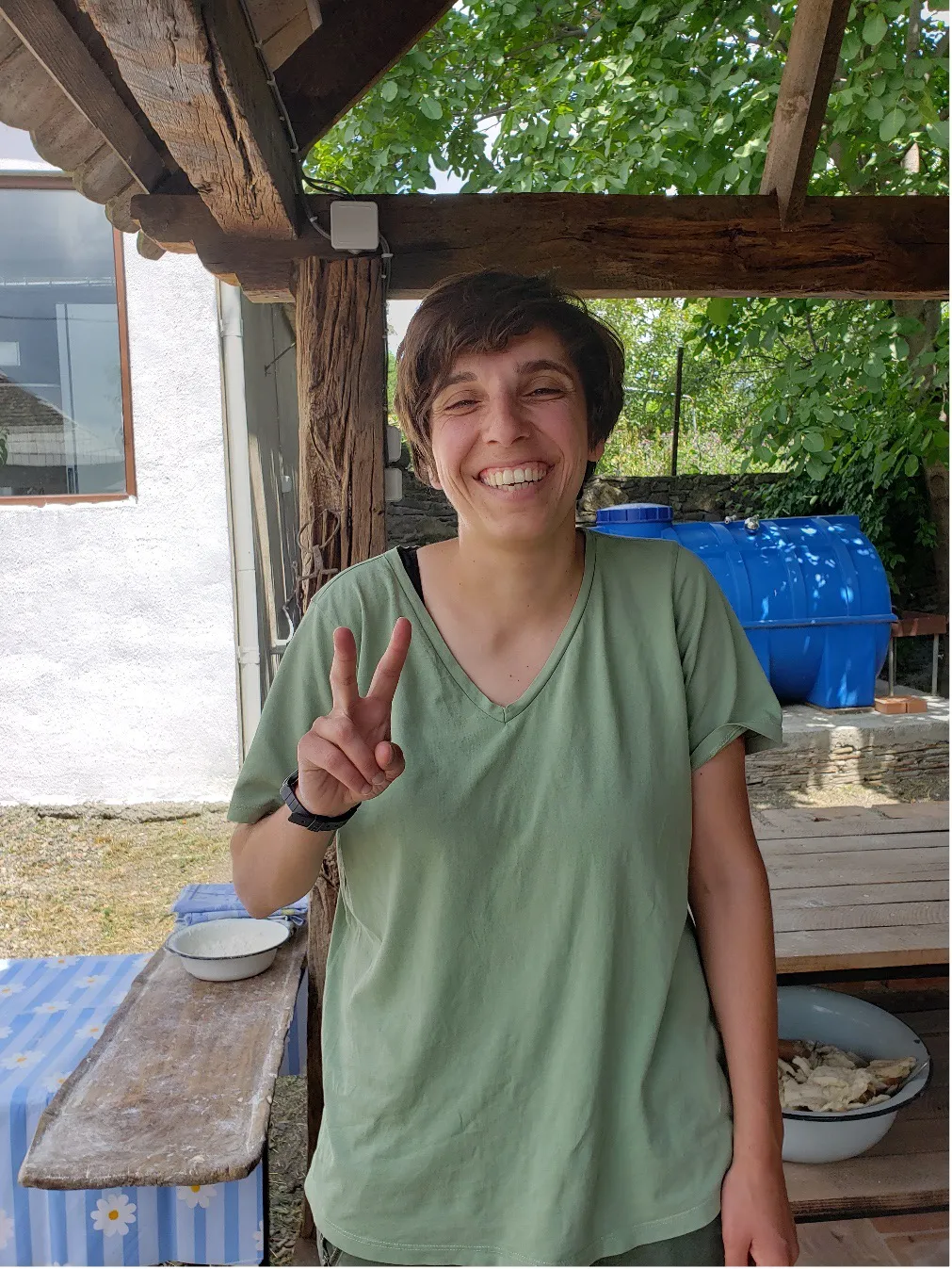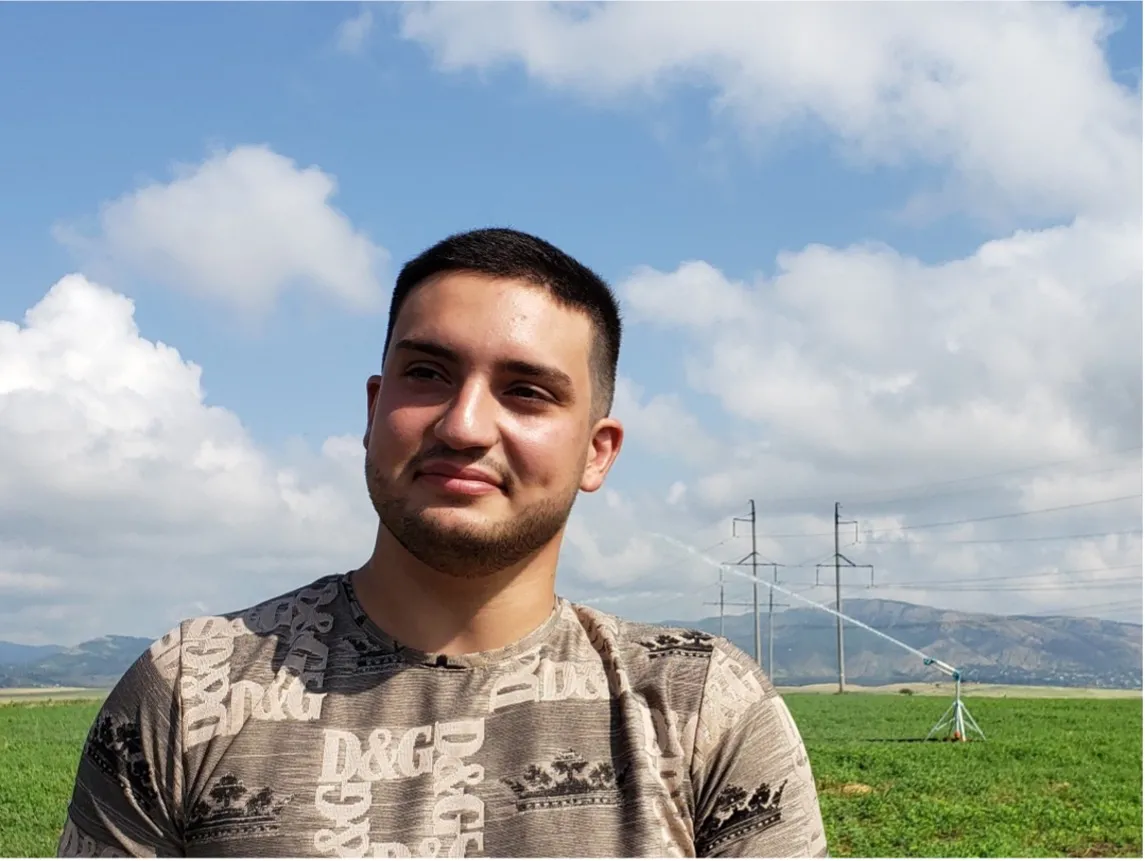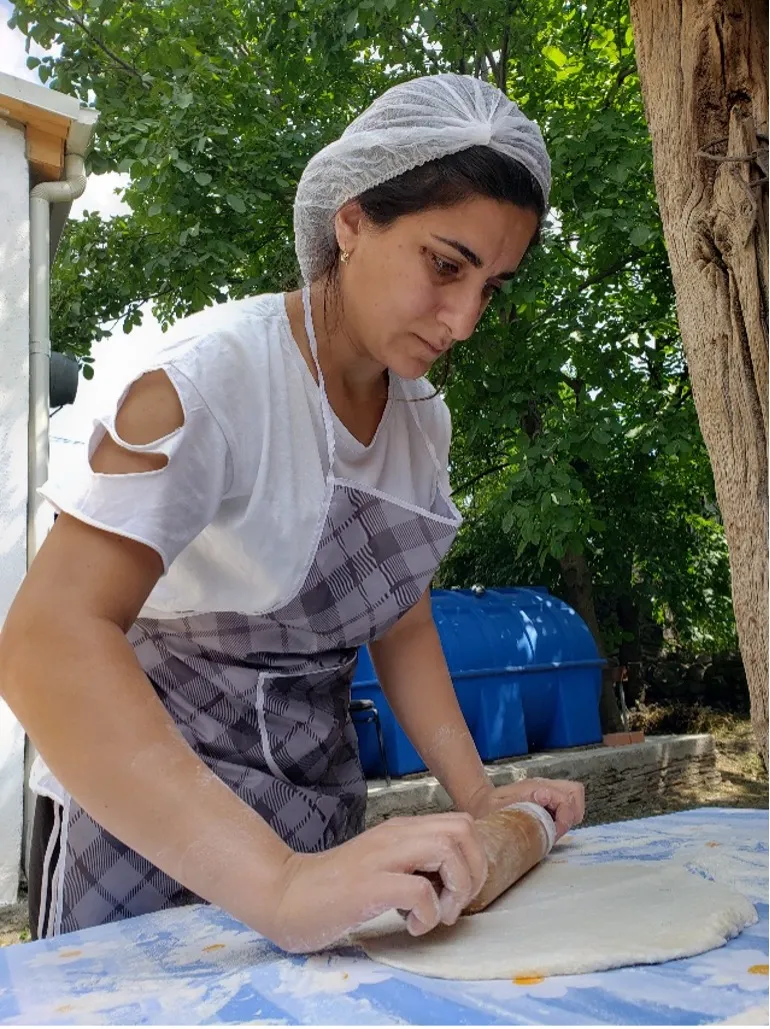For years, as visitors navigated the rugged cliffs, lush greenery, and waterfalls, they would ask Luso Dostibegiani, then a national park ranger, where they could buy local products and food after their hikes.
“I didn’t have an answer because there was nowhere like that around here,” she says. “That’s how the idea of my business was born.”
Luso secured a loan from a friend to buy land in the area, then sought several grants including the Community Development Initiative (CDI-7) business development grant. CDI-7 (seventh phase) is implemented by CARE Caucasus.
“CARE Caucasus has been in this community for a long time. I knew people who had gotten grants from the organization, so I knew I could apply for one and get support.”
The Community Development Initiative project began in 2003 with a goal of fostering social and economic development in 98 communities located along the BTC/SCP operational area, which includes Samshvilde Canyon and its namesake village. CDI’s seventh phase runs from 2022 through January 2026.





